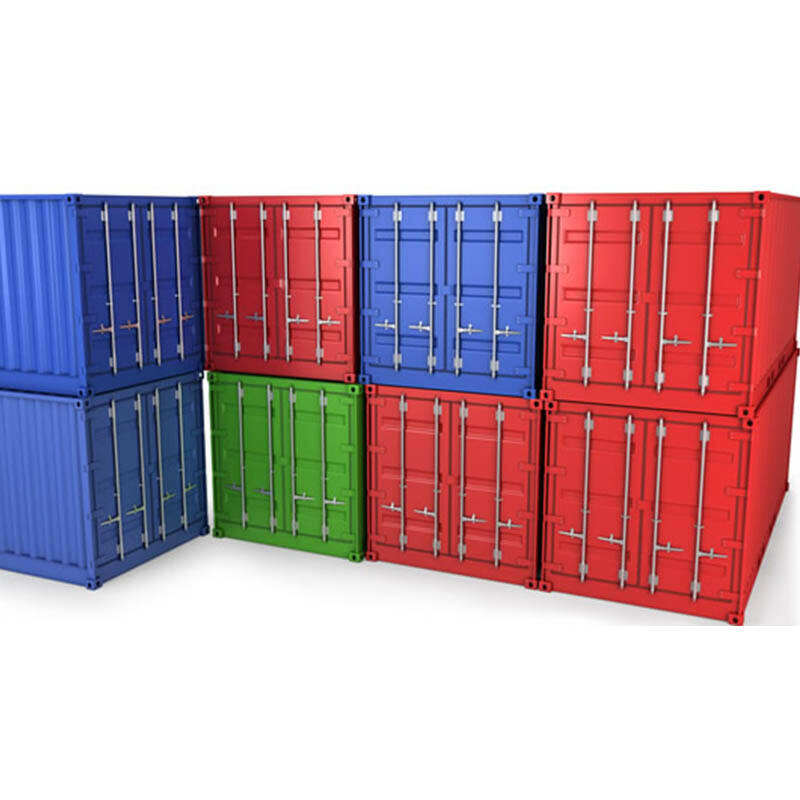Containerization and trade form a global universe, kind of like an abstraction in which creativity reigns over sustainability through the ages. Afterward, containers were been used at first as a standardized way of transporting units and later on history now it is an evolving new technical age beyond the logistics which revolutionize how we trade internationally. Dive deep into the state of play at present really throwing light not only on container production numbers touching up to millions but most interestingly pondering over how they are adding life in our cities and industries - sustainable or otherwise?.
Global Stats of 2018 Container Production (Decoded)
In turn, container production hints at the capitalist impetus behind globalization but also makes tangible good trade sense and proven supply chain reprocessions. Billions of year after, additional millions of Twenty ft Equivalent Unit (TEUs) are going to be created merely satisfy the requirement a lot more easy procedure for transporting goods. CINM and Singamas collectively control most of the companies which produce monstrous amounts( >90% ) containers at unbeatable pace via cutting edge manufacturing techniques to enhance robustness, cost-efficiency. Trade wars, global pandemics and transformations in world gross consumption naturally make the symbiosis of container production with all translucent humsors walk back, advance towards one or another side.
Real Life Industry Applications
Containers are no longer confined to the maritime and shipping industry where it originated years ago but containers have a wider use in other parts of their sector with various innovative ideas. Mobile farms Mobile farm,Using hydroponic and vertical farming techniques mobile farms grow produce in urban environments from specially modified shipping containers. / (Agriculture) Storage vendors have certainly swarmed to hot stuff like containerization, which jars are the obvious analogs of datacenters on a chip. The events industry has also been keen on these pop-up container venues, breathing new life into concerts exhibitions or even restaurants. By doing so, these adaptations reinforce the role of containers in facilitating new business model and operational excellence.
Eco-friendly Container Production Trends And Their Consequences
As derived from the international efforts toward carbon neutrality and circular economies, sustainability is rightfully high on list for container manufacturing. Makers are even looking past traditional materials, as they consider more ecofriendly options like bamboo or recycled steel - both of which have ground strength certified levels and substantially lower any impact on the environment. Additionally, the roofs now feature solar panels that can power refrigerator units or indoor lights for when in auxiliary mode so the truck operators don't have to run off of gasoline all day and night. These green initiatives address the environmental burdens that single-use plastics bring, but they are also building demand for compatible eco-conscious packaging products that will be used as consumerism and businesses want to cater towards environmentally friendly supply chains.
Revolutionary Applications Transforming Global Trade
In terms of reshaping business models, innovative containerization has been the name of the game and holds immense promise globally with which it can bring maximum cargo potential while safely transporting or storing out-of-standard items. Smart containers have IoT sensors inside that autonomously monitor temperature, humidity and location as products such as pharmaceuticals or perishables journey without any interference. This includes container empty repositioning cost and an emission for the whole time, when a unit is not in use too. Foldable/collapsible containers can help to diminish this factor greatly Also, it blocks fraud and ensures the security of this logistic system by employing container tracking through a ledger in blockchains. These developments are some push for containerization to establish itself as an alternative means of continuous international trade.
Eccentric Uses of Conex Boxes in Urban Construction
Urban areas have been trending positively as a growing number of non-conventional but visual containers from real estate are being utilized. Converted shipping containers give us a surprisingly low cost means to create our own stylishly-designed mobile homes, permanent office spaces or just modern retail areas. Their flexibility that permits them to be a stackable layout indicates architects can play with species as well as create custom layouts in figures, but also visually. Container homes are those that serve as immediate housing response in a post-disaster community or for people who do not have space to house yet - and they also find their new niche in the emerging minimalist lifestyle notion. These things can be containerised as such that you have rooftops with gardens, a community park or even more sport infrastructure whereby everyone knows they are living in the concrete jungle but has at least some sort of greenery and see all their intuitiveness food growing well.
To sum it up, some times logistics and international container production or trade can sound like only really dry numbers; but as the story indicates - this is really a tale of human evolution over time. Containers containers everywhere, from changing the landscape of how we all globally trade to these same containers being used as entire buildings in cities. As we move into a new era of global climate change and technology continues to advance, industries worldwide are being presented with exciting opportunities where containerization is concerned.
















































